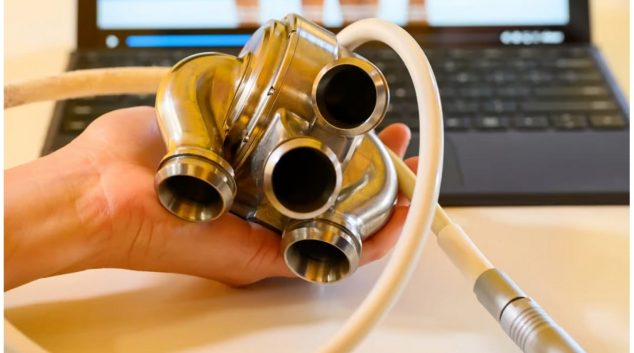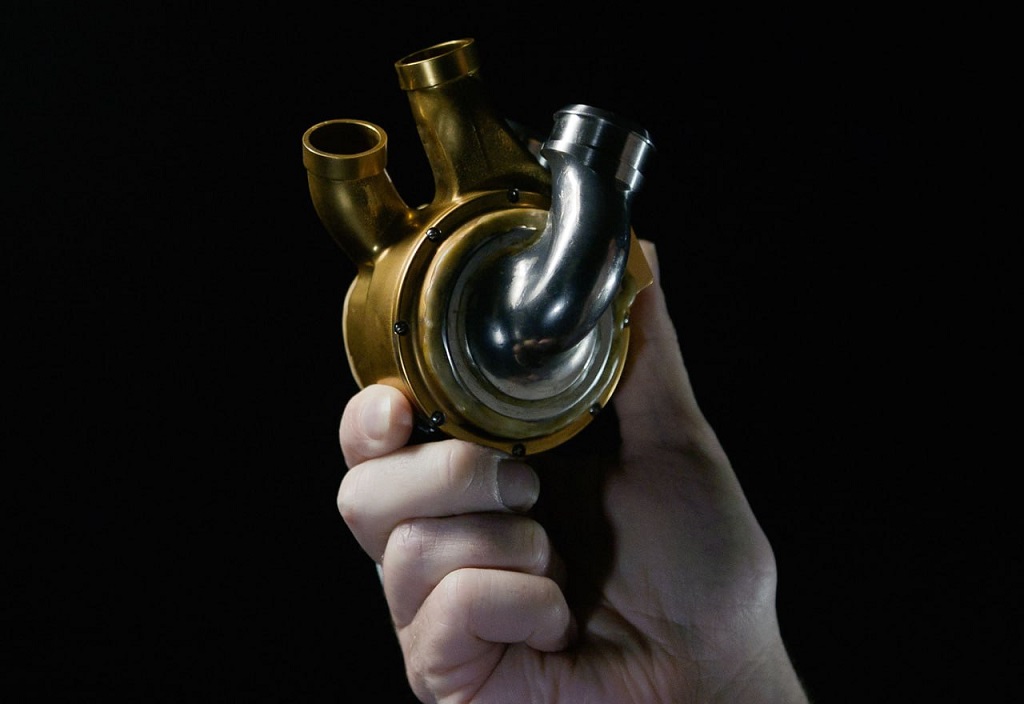For the first time in history, a fully mechanical heart, created by BiVACOR and using technology used in high-speed rail lines, has been successfully implanted in a human.

The artificial heart (TAH) was introduced as part of an early feasibility study conducted by the US Food and Drug Administration. The operation took place at the Texas Heart Institute, where experts emphasized that the new device is a titanium biventricular rotary pump with one moving part. A magnetically suspended rotor pumps blood and replaces the two chambers of the patient’s heart.
Since its inception in 2013, BiVACOR has been working on the device, and now it can be said that their efforts have yielded significant results. The use of magnetic suspension to control the function of blood circulation eliminates friction, which is the main advantage of this device. Unlike previous artificial hearts that used flexible polymer diaphragms, the new BiVACOR heart is more durable due to the absence of wearable components.

The mechanical heart, about the size of a fist, is connected to a small rechargeable external controller and is capable of pumping blood at a rate of 12 liters per minute. This is enough for an adult to exercise. The company says the device is designed to keep the patient alive while awaiting a heart transplant, which remains the ultimate goal of treatment at this stage.
BiVACOR founder Daniel Timms expressed his gratitude to the team and the first patient, noting:
"Using advanced magnetic levitation technology, our TAH brings us one step closer to providing a much-needed treatment option for people with end-stage heart failure who need support while waiting for a heart transplant." I look forward to continuing the next phase of our clinical trials."
The next phase of the trial will involve the implantation of titanium hearts in two more patients, who will be closely monitored while they await a permanent transplant.
According to the American Heart Association, heart failure affects more than 26 million people worldwide. Demand for heart transplants has doubled over the past 30 years, and there are currently more than 3,400 people on the transplant waiting list. If the BiVACOR titanium heart passes clinical trials, it could support the lives of thousands of patients until a new heart is available.





